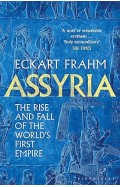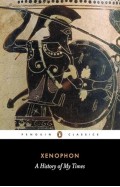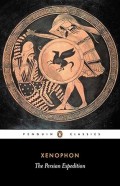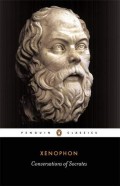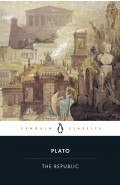Nefertiti's Face: The Creation of an Icon
By: Joyce Tyldesley
-
Rs 1,950.75
- Rs 2,295.00
- 15%
You save Rs 344.25.
Due to constant currency fluctuation, prices are subject to change with or without notice.
More than three thousand years ago a sculptor working in the royal city of Amarna carved a limestone bust of an Egyptian queen. The queen was Nefertiti, consort of the 'heretic pharaoh' Akhenaten. Plastered and painted, Nefertiti's bust depicted an extraordinarily beautiful woman. However, Akhenaten's reign was drawing to an end, and the royal family was soon to be written out of Egypt's official history. Not long after its creation the stone Nefertiti was locked in a storeroom and forgotten.In 1912 the bust was re-discovered and transported to Germany. Initially hidden from the public view, the beautiful queen was eventually displayed in Berlin Museum. Instantly, she became an ancient world celebrity.Egypt has yielded more than its fair share of artistic masterpieces, but no other sculpture has so successfully bridged the gap between the ancient and modern worlds. The timeless beauty of the Nefertiti bust both attracts us and sparks our imagination, but in so doing it obscures our view of the past, shifting attention not only from the other members of the Amarna court, but also from other, equally valid, representations of Nefertiti herself. In this book Joyce Tyldesley explores the creation of a cultural icon, from its ancient origins to its modern context: its discovery, its display, and its dual role as a political pawn and artistic inspiration.
More than three thousand years ago a sculptor working in the royal city of Amarna carved a limestone bust of an Egyptian queen. The queen was Nefertiti, consort of the 'heretic pharaoh' Akhenaten. Plastered and painted, Nefertiti's bust depicted an extraordinarily beautiful woman. However, Akhenaten's reign was drawing to an end, and the royal family was soon to be written out of Egypt's official history. Not long after its creation the stone Nefertiti was locked in a storeroom and forgotten.In 1912 the bust was re-discovered and transported to Germany. Initially hidden from the public view, the beautiful queen was eventually displayed in Berlin Museum. Instantly, she became an ancient world celebrity.Egypt has yielded more than its fair share of artistic masterpieces, but no other sculpture has so successfully bridged the gap between the ancient and modern worlds. The timeless beauty of the Nefertiti bust both attracts us and sparks our imagination, but in so doing it obscures our view of the past, shifting attention not only from the other members of the Amarna court, but also from other, equally valid, representations of Nefertiti herself. In this book Joyce Tyldesley explores the creation of a cultural icon, from its ancient origins to its modern context: its discovery, its display, and its dual role as a political pawn and artistic inspiration.
Nefertiti's Face: The Creation of an Icon
By: Joyce Tyldesley
Rs 1,950.75 Rs 2,295.00 Ex Tax :Rs 1,950.75
Zubin Mehta: A Musical Journey (An Authorized Biography)
By: VOID - Bakhtiar K. Dadabhoy
Rs 892.50 Rs 1,050.00 Ex Tax :Rs 892.50
Assyria - The Rise and Fall of the World's First Empire
By: Eckart Frahm
Rs 3,415.50 Rs 3,795.00 Ex Tax :Rs 3,415.50
Guns Germs And Steel A Short History Of Everybody For The Last 13000 Years
By: Jared Diamond
Rs 2,965.50 Rs 3,295.00 Ex Tax :Rs 2,965.50
The Modern Mind An Intellectual History of the 20th Century
By: Peter Watson
Rs 3,565.75 Rs 4,195.00 Ex Tax :Rs 3,565.75
From The Holy Mountain A Journey In The Shadow Of Byzantium
By: William Dalrymple
Rs 2,316.00 Rs 2,895.00 Ex Tax :Rs 2,316.00
Knowledge Encyclopedia History!: The Past as You've Never Seen it Before
By: DK
Rs 4,945.50 Rs 5,495.00 Ex Tax :Rs 4,945.50
Assyria - The Rise and Fall of the World's First Empire
By: Eckart Frahm
Rs 3,415.50 Rs 3,795.00 Ex Tax :Rs 3,415.50
Peter F. Drucker on Business and Society
By: Peter F. Drucker
Rs 8,005.50 Rs 8,895.00 Ex Tax :Rs 8,005.50
Peter F. Drucker on Practical Leadership
By: Peter F. Drucker
Rs 8,005.50 Rs 8,895.00 Ex Tax :Rs 8,005.50
The Importance of Being Educable: A New Theory of Human Uniqueness
By: Leslie Valiant
Rs 8,095.50 Rs 8,995.00 Ex Tax :Rs 8,095.50
Mapping the Darkness - The Visionary Scientists Who Unlocked the Mysteries of Sleep
By: Kenneth Miller
Rs 4,075.75 Rs 4,795.00 Ex Tax :Rs 4,075.75
Zubin Mehta: A Musical Journey (An Authorized Biography)
By: VOID - Bakhtiar K. Dadabhoy
Rs 892.50 Rs 1,050.00 Ex Tax :Rs 892.50
Nefertiti's Face: The Creation of an Icon
By: Joyce Tyldesley
Rs 1,950.75 Rs 2,295.00 Ex Tax :Rs 1,950.75
Assyria - The Rise and Fall of the World's First Empire
By: Eckart Frahm
Rs 3,415.50 Rs 3,795.00 Ex Tax :Rs 3,415.50












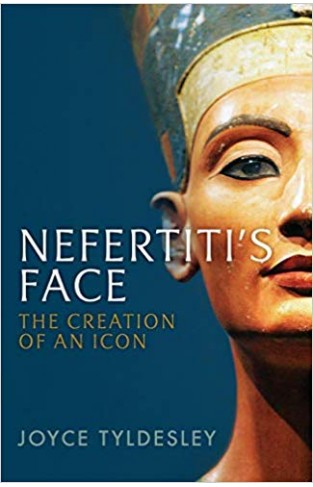
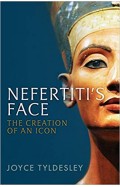
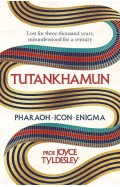
-120x187.jpg?q6)






